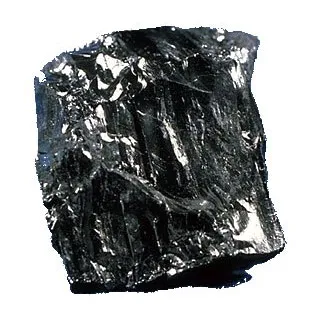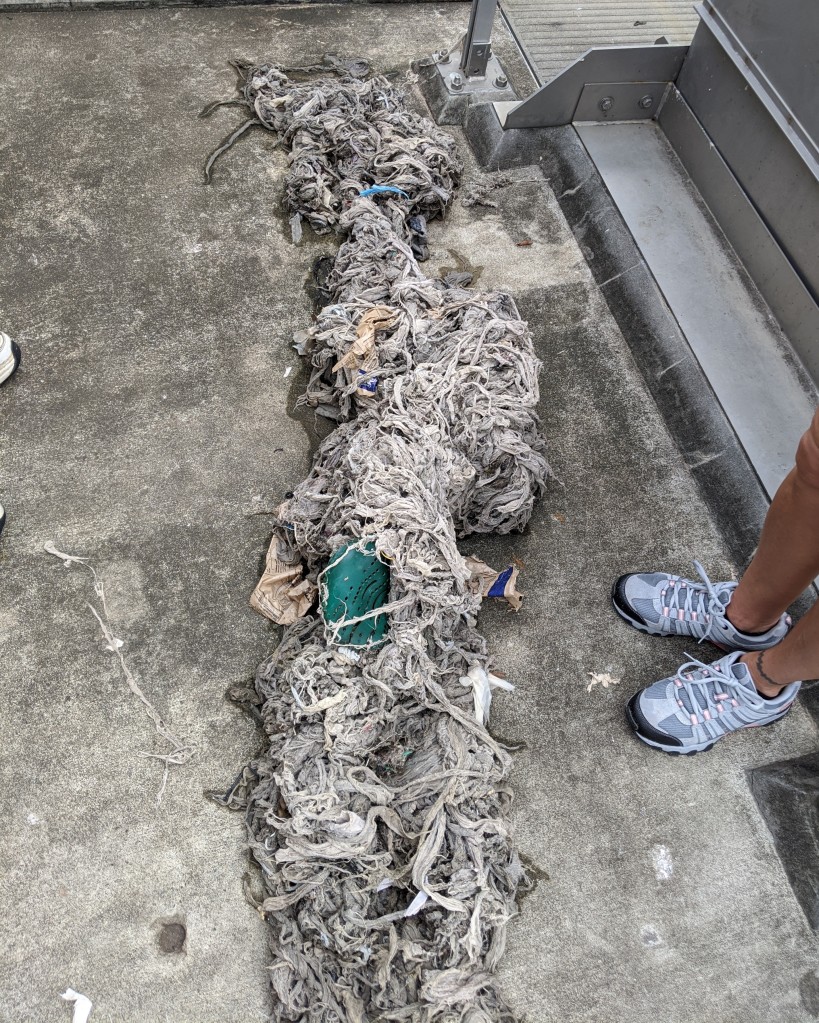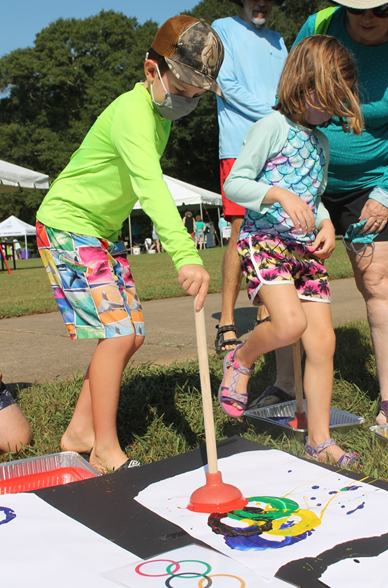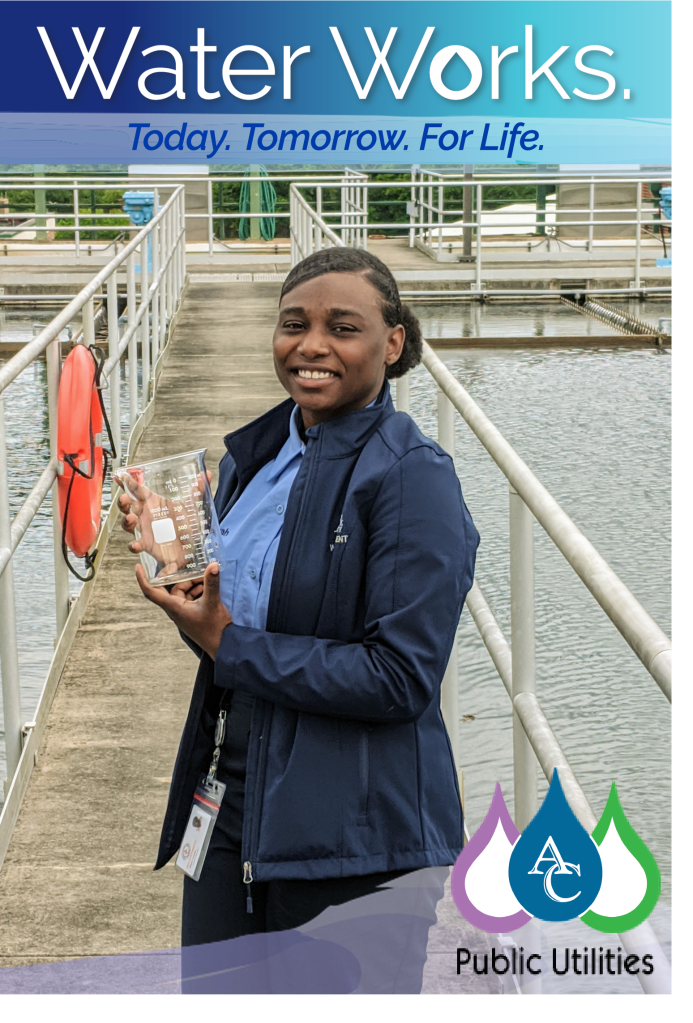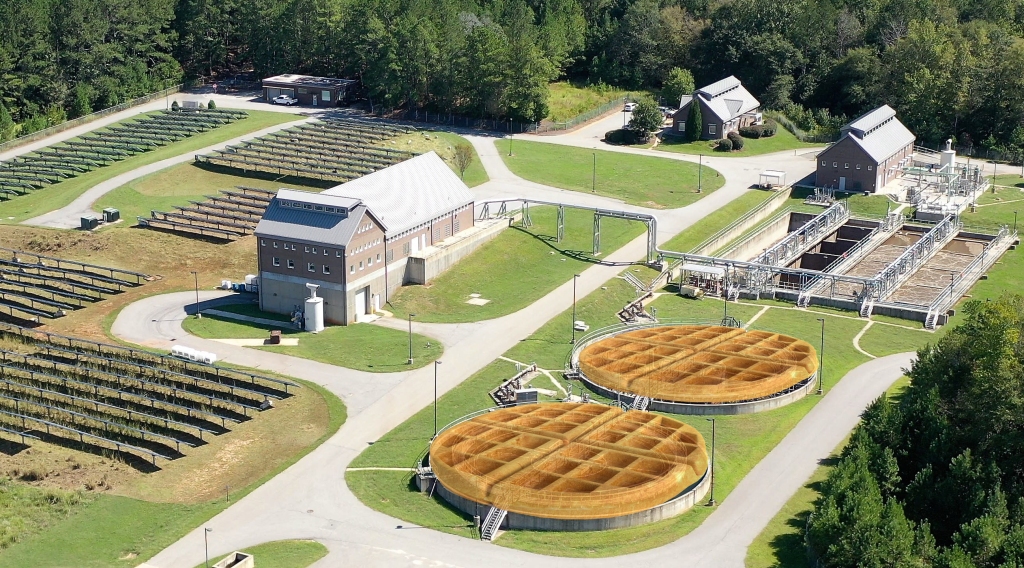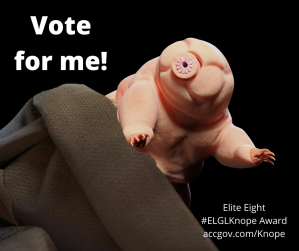
An Oxford dictionary definition is a pretty cliché way to start a speech (or, in this case, a blog post). But, as a public works employee, I wondered about the definition of our job. After a brief Google search, the Oxford dictionary defines public works as “the work of building such things as roads, schools, and reservoirs, carried out by the government for the community.”
To celebrate National Public Works Week (May 15-21, 2022), we are highlighting some of the public works employees around the county. Athens-Clarke County Government (ACC Gov) is fortunate to have many ready and resilient employees. It takes many people and departments to keep everything up and running. Let’s learn about some of these essential workers!
First Up: Jonmichael Jones
Jonmichael is a Building Supervisor in the ACC Gov Central Services Landscape department on Lexington Road. He has worked for ACC for three and half years, managing day-to-day landscape maintenance around all the ACC buildings. He also monitors projects, budgets, fuel use, hours, and his crews’ safety and well-being. His daily tasks include walking through job sites, spraying weeds, working on trees, purchasing supplies, and doing paperwork. Water plays a huge role in Jonmichael’s job. He needs it to maintain the health of turfgrass, shrubs, and trees all around the county. His crews also need water to stay hydrated throughout the day. To Jonmichael, Public Works means “maintaining and enhancing property, roads, buildings, sidewalks, and all other essential services that better the welfare of the citizens of ACC.” When off the clock, Jonmichael likes to visit Seabear Oyster Bar, one of his favorite restaurants.
Next: Chris Wages
Chris is a Permit Supervisor at the Transportation and Public Works Department in downtown Athens. He has been serving the community as an ACC Gov employee for 26 years! As a Permit Supervisor, he and his team of four permit inspectors monitor and oversee all Land Disturbance Activity permits, Driveway permits, and Right-of-Way Encroachment permits. This permitting is done to ensure that construction doesn’t lead to soil erosion, sedimentation, or pollution in our waterways. All the construction also has to follow ACC standards to ensure safety and quality.
Every day at the office is a little different for Chris, but he enjoys that. Monday, he could train inspectors, give technical advice, or inspect areas himself. Tuesday, he might be meeting with other departments such as Building Inspections, Traffic Engineering, Streets and Drainage, the Attorney’s Office, Public Utilities, the Environmental Protection Division, the Georgia Soil and Water Conservation Commission, or maybe even the Engineering Department! On Wednesday, Chris could work with the public, answering permitting questions or inspecting driveways in the field. Water, specifically stormwater, is something Chris has to work with a lot. He does most of the permitting to “control, convey, filter, and minimize stormwater runoff.” When Chris thinks of Public Works, he thinks about all of the people in the county that work to maintain our public Right-of-Way.
You might know what the Public Right-of-Way is without realizing it! As the picture above shows, the arrows extend past the sidewalk into all houses’ front yards identifying areas owned and managed by the local government. The dotted line shows the boundary of the Public Right-of-Way, which includes the sidewalk and streetlights, and sometimes people’s driveways. When Chris isn’t helping us maintain a beautiful and functional county, he likes to hunt, fish, spend time with his wife and grandkids, and be an active member of his church.
Our Third Highlight: Michael Hughes
Michael is officially the Operations Coordinator for Water Reclamation, but he is currently serving as the Interim Environmental Engineer for the Public Utilities Department! With two jobs come two offices. His first office is at the Middle Oconee Water Reclamation Facility on Will Hunter Road and his second office is in the Public Utilities Administration Building on Hancock Avenue. He has worked in ACC Gov for almost 27 years! As an Environmental Engineer, he oversees all three wastewater treatment plants (North Oconee, Middle Oconee, and Cedar Creek), water towers, and booster pump stations, all of which help deliver water to ACC residents.
Every day, Michael has to review test results from the water treatment plant and water reclamation facilities. He works with the plants’ water operators, contractors, and other engineers. He also monitors the budget and finds ways to cut costs. Water is involved in every part of Michael’s job. Not only does he help ensure that safe, tasty drinking water is always available for residents, but he also confirms that wastewater is properly treated and returned to the river.
Michael summed up Public Works really nicely: It is all about providing the best services for ACC residents. This includes safe drinking water from Public Utilities, safe roadways from the Transportation-Public Works Department, a clean city thanks to Solid Waste, and ways to get around town with Athens Transit. When Michael’s not at work, he really enjoys getting outside and walking on the Greenway, especially the part that runs from Sandy Creek Nature Center to North Avenue. He considers it a hidden gem of Athens.
Last but not least, we have Paisley Stewart!
Paisley Stewart started working for ACC Gov in August of 2020 as a Community Development Specialist, but in January 2022 she became the Homeless Specialist. She works for the Housing and Community Development Department on Satula Avenue. In her role, Paisley works on the Community Development Block Grant (CDBG) and the Continuum of Care (CoC) Homeless Assistance Program. She works with non-profits that also receive CDBG and CoC funds, like the Athens-Clarke County Homeless Coalition, to make sure they all stay in compliance with federal regulations. Most of Paisley’s work has to do with annual grants and renewal applications, so her day-to-day varies as proposals progress. For CDBG and CoC she helps coordinate the application process, evaluate proposals, review and approve reimbursement requests, provide technical assistance, and make sure everything stays in compliance with the United States Department of Housing and Urban Development regulations.
Water might not seem to play an obvious role in Pailey’s job, but it is an essential need of all people, and for the homeless, access to water is not something they can take for granted. Paisley works to provide long-term stable housing for everybody in Athens, which includes long-term stable access to water. To Paisley, Public Works include all of the activities that the community comes into contact with on a daily/weekly/monthly/yearly basis, in addition to the government’s ability to respond to the needs and desires of the community. In her free time, Paisley loves to explore Athens, from parks to live music downtown to drag shows. She tries to be an active part of her community and give back when she can, so she serves on the Athens Pride & Queer Collective Executive Board and the Athens-Clarke County Homeless Coalition Board.
That’s all folks!
Thank you for learning about some of our wonderful ACC Gov employees. Remember that water helps you stay Ready & Resilient each and every day.














